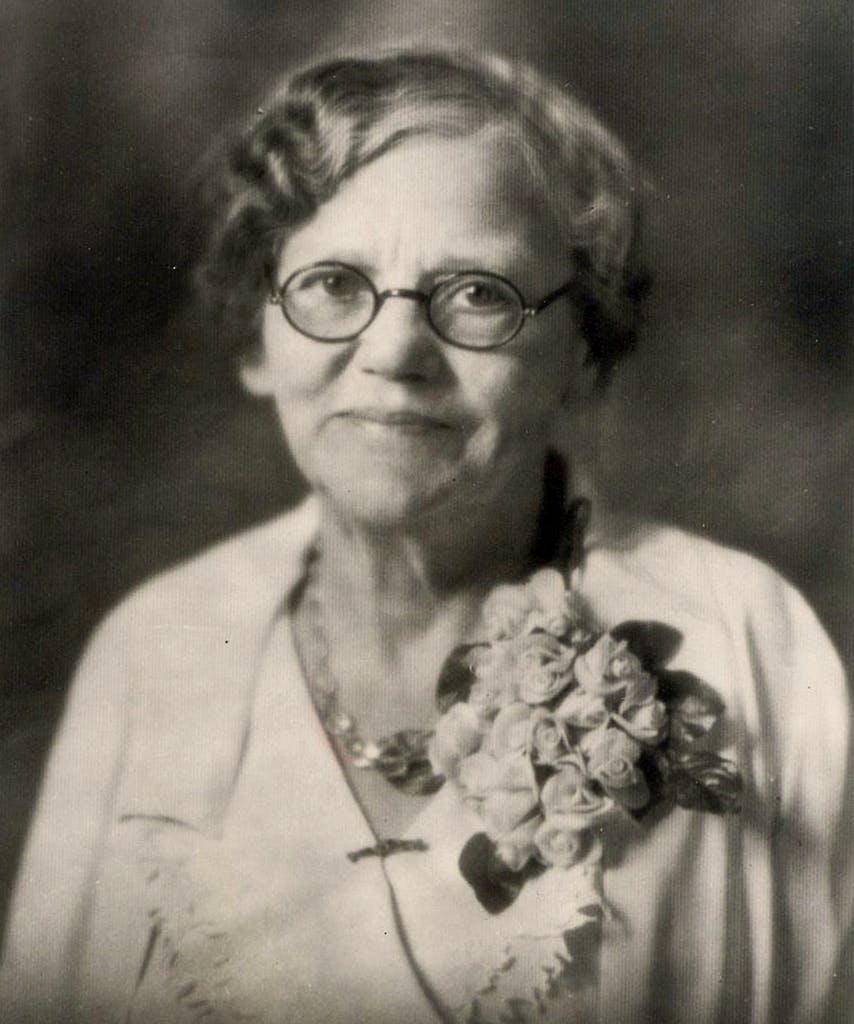How Florence Butt—Not Her Son—Launched the H-E-B Empire

Like many Texans, I always assumed that Howard Edward Butt was the mastermind behind our state’s favorite grocery chain. The business is named for his initials, after all. Women tend to be relegated to minor roles in rags-to-riches stories, when their names are remembered at all—and it’s time to correct that. H-E-B—arguably the most beloved brand in the state, with roughly 430 stores and a well-oiled disaster-response machine that Texans trust more than the government in times of crisis—wouldn’t exist if it weren’t for Howard’s mother, Florence Thornton Butt, who opened the family’s first store, in the Hill Country town of Kerrville, in 1905.
She did so out of desperation. Florence’s husband, Charles Clarence “C. C.” Butt, fell ill with tuberculosis and couldn’t work; it was up to Florence to support the family, which included three young sons. In the days before antibiotics, prevailing medical wisdom held that tuberculosis could be cured through rest and exposure to fresh air in warm, relatively dry climates. Butt’s doctor had advised him to move to such a place. The family chose Texas—moving first to San Antonio, in 1904, and a year later to Kerrville, a half hour southwest of Fredericksburg. Today the town is a tourist destination, known for its spring wildflowers and summer folk festival—but a century ago it was a remote, rugged place where chronically ill Americans sought refuge. Physician George Parsons, from Chebanse, Illinois, had himself recovered from tuberculosis in the Hill Country town; he later wrote about his experience in a medical journal and started Kerrville’s first sanatorium, bringing still more patients hoping for a cure.
Florence Butt came to Kerrville with her husband, their three preteen and teenage sons, and at least one older stepson. Initially, the family may have lived in a canvas tent near the Guadalupe River. Tent camps were full of tuberculosis patients and their families trying to get adequate fresh air and sleep close to the ground, as doctors recommended. As she tended to her family in this primitive setting, Florence had to find a way to provide for her ill husband and her children in a town where she knew no one. In time, she would open a successful store, become a leader in the local Baptist church, endure the death of her husband and one son, and develop a reputation as a generous community leader.
Collings Guitars Are Worth Every Penny
“She perseveres,” says Joe Herring Jr., a lifelong Kerrville resident, a former mayor, and the town’s amateur historian. “And she does all this when she’s not even allowed to vote.”
Florence Thornton was born into a farming family in Buena Vista, Mississippi, on September 19, 1864, during the last year of the Civil War. Her obituaries say she graduated with honors and as the only woman in her class at Clinton College. (This might have been the now-defunct Clinton College in Kentucky, or perhaps Mississippi College in Clinton, Mississippi, outside Jackson—although the latter did not admit women at the time and does not have a record of her attendance.) She taught school and then, at 24, married Butt, a widower sixteen years her senior who ran a drugstore. Their wedding announcement in the Grenada, Mississippi, Sentinel describes him as an “accomplished gentleman and a popular citizen” and her as “a lady of rare intelligence.” The couple lived in Duck Hill, Mississippi, and Memphis, Tennessee, before C.C.’s tuberculosis diagnosis and their migration to Texas.
In Kerrville, Florence, then 41, initially tried door-to-door sales for the Great Atlantic & Pacific Tea Company, or A&P, which by the 1920s would become the largest grocery retailer in the world. She visited people’s homes to offer them a list of items they could order, which she would later deliver. At least once, a woman slammed the door in her face, saying she didn’t buy from peddlers. “Mother was a very refined woman, and this hurt her deeply,” her son Eugene later wrote.
Scrappy Florence Butt changed tactics. Stories about the original H-E-B suggest she opened the store with around $60 in grocery stock—equivalent to about $2,000 today. She rented a two-story wood-frame building on Main Street, near the Baptist Church (Florence was a devout Baptist) and Masonic Lodge (C.C. was a Mason), that had a few hundred square feet of space on the first floor and living quarters above. On this spot in 1905, she opened the store that became the first Butt family grocery enterprise.









